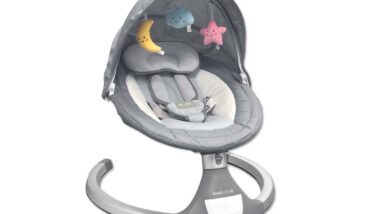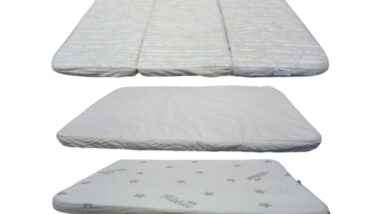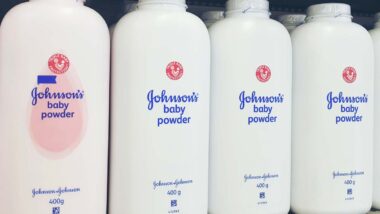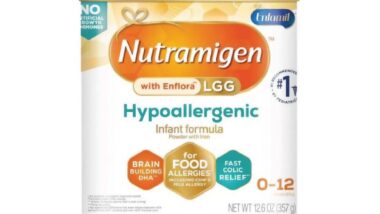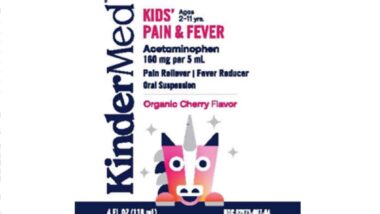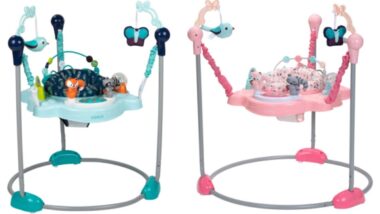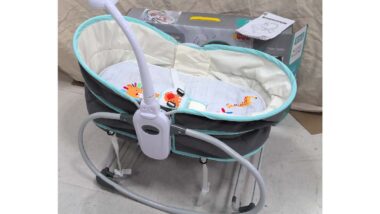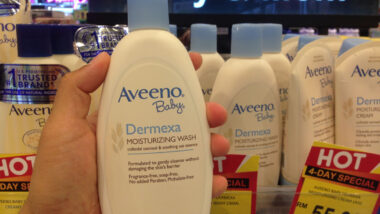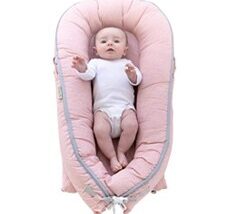Top Class Actions’s website and social media posts use affiliate links. If you make a purchase using such links, we may receive a commission, but it will not result in any additional charges to you. Please review our Affiliate Link Disclosure for more information.
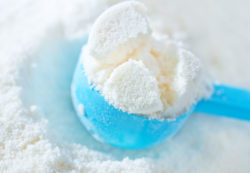
How Are Children’s Bones Different from Adult Bones?
The biggest difference between adult and child bones, according to Children’s Healthcare of Atlanta, is that children are still growing.
In infancy, this means that a child’s bones are growing rapidly and fusing together. An adult has 206 bones while a newborn has nearly 300. Children, instead of fully formed, fused bones, have an excess of cartilage in their bodies. As children grow, this cartilage hardens to form mature bones.
Later in childhood, bones are more mature, but still differ greatly from adult bones. A child’s bones are continuously growing from the growth plates, portions of the end of bones in which growth occurs. Because of this continuous growth, bones are able to heal quickly following an injury.
Additionally, the ligaments in children are much stronger than those in adults and may even be stronger than the bones themselves.
Do Children’s Bones Break Easily?
Unlike adult bones, which are brittle and more likely to break, young children’s bones are more likely to bend. However, from ages 11 to 15, breaks may be more common due to pubertal growth spurts. During these times, bones may be growing faster than the body can supply the minerals needed for healthy, strong bones.
Although the likelihood of breaks can vary throughout childhood, most children are able to bounce back from broken bones relatively quickly. Most breaks only require a cast with no surgery because a bone can correct itself over time.
On the other hand, bone breaks can lead to long-term consequences if they occur in the growth regions of a bone. This can lead to abnormal growth or significant limb deformity.
To support healthy bones in children, parents should make sure that their kids get enough calcium and vitamin D – two nutrients that are essential for bone health.
What Weakens Bones?
In some cases, outside factors may make a child’s bones far weaker than normal. Conditions such as osteoporosis may cause this, and nutrition can play a role in bone health, making a child more prone to bone breakage.
More recently, Neocate elemental formulas have been linked to rickets, a condition involving soft and weak bones. Doctors have reportedly seen young children with frequent bone fractures due to the condition.
Ingestion of Neocate, whose elemental formulas may be recommended to infants with allergies, or children who cannot eat normally, can reportedly result in low levels of phosphate. As Neocate infant formulas are amino-acid based, they may be easier for children with food allergies to digest, but these formulas may have negative health side effects for the already vulnerable children who require them as part of their diet.
Although rickets is commonly seen with low vitamin D levels, low levels of phosphate can reportedly lead to this skeletal abnormality. Low phosphate levels may also be linked with low bone density, skeletal deformities, stunted growth, and broken bones. Additional symptoms of rickets may include bowed legs, thickened wrists or ankles, or a projected breastbone. Without treatment, rickets may also result in dental defects, permanent spinal curvature, or seizures.
Neocate Complications
If your child consumes Neocate, it is important to be aware of the potential risks associated with the formula. In at least one case, a child with severe medical problems who required a Neocate diet fractured his wrist and femur after the meal replacement formula weakened his bones. However, his father was not aware of the potential bone side effects of Neocate and was unable to explain these breaks to the hospital, who reported him for suspected child abuse. Although he was eventually cleared of these allegations, it was not until a family member saw a commercial warning about the potential effects of Neocate on bone health that an explanation was found.
A 2017 Neocate study published in the journal Bone reported that 51 children across North American and Ireland were diagnosed with skeletal problems after Neocate usage, 94 percent of them with rickets, broken bones, or low phosphate levels. Luckily, the researchers found that “most all improved with the addition of supplemental phosphate or change to a different formula.”
Children who require a special formula diet due to food allergies or sensitivities may be able to switch to a different meal replacement formula due to the bone dangers associated with Neocate. Even if children who consume Neocate have already begun to experience bone damage or weakness, switching to a different formula may halt or reverse these changes.
If your child’s bones were damaged due to side effects of Neocate meal replacement formula, you may be eligible to hire a qualified attorney and file a class action lawsuit against the company.
Join a Free Neocate Infant Formula Class Action Lawsuit Investigation
If you have a child that takes Neocate and has suffered from bone fractures or other Neocate side effects such as rickets, you may qualify to join this Neocate lawsuit investigation. Fill out the form on this page for a free case evaluation.
ATTORNEY ADVERTISING
Top Class Actions is a Proud Member of the American Bar Association
LEGAL INFORMATION IS NOT LEGAL ADVICE
Top Class Actions Legal Statement
©2008 – 2024 Top Class Actions® LLC
Various Trademarks held by their respective owners
This website is not intended for viewing or usage by European Union citizens.
Get Help – It’s Free
Join a Free Neocate Infant Formula Class Action Lawsuit Investigation
If you qualify, an attorney will contact you to discuss the details of your potential case at no charge to you.
PLEASE NOTE: If you want to participate in this investigation, it is imperative that you reply to the law firm if they call or email you. Failing to do so may result in you not getting signed up as a client or getting you dropped as a client.
E-mail any problems with this form to:
Questions@TopClassActions.com.
Oops! We could not locate your form.

